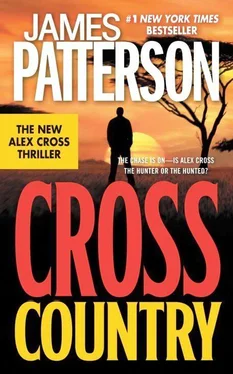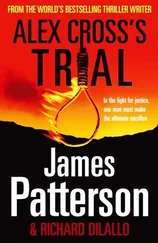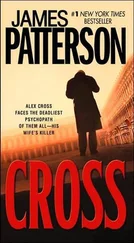THE TWO MARINES were polite and respectful enough but very mission oriented as they escorted me to a subbasement locker room.
It had tall wooden lockers and a faded carpet, a tiled steam room and whirlpool, and a small area for showering. As promised, I was given a fresh towel.
One of the marines asked me my trouser, shirt, and shoe size and then left. The other marine told me I had about ten minutes to shower and dress, so I ought to get started. Both of the marines were black – probably no coincidence there.
There were four stalls, each with a curtained changing cubicle in front. I stood inside the last one, my mind racing while the clock ran down on my time in the country.
What was I going to do? There were no windows in the room, and there was only one exit. I turned on the water, just to sound busy.
Then I leaned in and let it pour over my head.
Suddenly my whole body was shaking. I was remembering Adanne, and that had to stop, for now, anyway
A minute later, I heard someone moving around outside. A curtain slid open and closed. One of the other showers was turned on.
Someone was humming that James Blunt ballad that was always on the radio, the one where he keeps repeating the word beautiful.
I took off the remnants of my shirt. Then I stuck my head under the water again, and leaned back out, dripping on the floor.
“Hey, can you get me another towel?” I asked the guard.
I had noticed there were stacks of them by the entrance when we’d come in.
“Why do you need two?” he leaned inside the shower and said.
“Are you kidding? You saw the way I look. And smell.”
He shook his head but went to get the extra towel.
“Thanks,” I called.
I immediately stepped over to the other cubicle, holding the curtain rings to keep them from singing on the bar.
Whoever was showering next to me had hung his clothes on a hook in the changing stall.
I rifled through the pants pockets and found just what I was hoping for – a cell phone.
Seconds later, I was back in my own stall just before the marine looped a white terry towel over the top of the bar. “You’d better pick up the pace,” he said from outside the curtain.
I turned the shower up as hard – and as loud – as it would go.
Then I dialed Ian Flaherty’s number.
He answered himself.
“FLAHERTY,” I SAID. “It’s Alex Cross.”
“Cross? Where are you?”
“I’m at the consulate. I’m in Africa. They’re sending me out of the country. It’s going down right now. I need you to talk to someone and get it stopped. I’m close to the bastard, the Tiger.”
He didn’t even pause before he answered. “No can do. I can’t cover for you anymore.”
“I don’t need you to cover for me. Adanne Tansi is dead – he killed her. I need you to make a call or two. I can break this case now.”
“You don’t get it,” Flaherty said. “You’re done over here. Game over. Go home and stay there. Forget about Abi Sowande. Or whatever his name is now.”
The water in the other shower stopped. The man in there started whistling. I hit the heel of my hand against my forehead, putting it all together. Flaherty hadn’t been covering for me at all. I had this all wrong, right from the beginning.
“I was covering for you, wasn’t I?” I said.
The whistling in the next stall stopped for a second and then continued.
“That’s why you wanted people thinking I was CIA. I was out in the open. While you played covert, I was a useful distraction.”
“Listen.” I could hear in Flaherty’s voice that he was done. “I’ve got to run. We saved your bacon a couple of times. Be thankful. There’s a war going on here. Get the hell out of Dodge – call me from the States.”
“Flaherty!”
He hung up at the same time that the shower curtain flew open.
The marine who’d fetched the towel was there and looking totally pissed off. He pushed me into the wall and pinned my wrist. I didn’t struggle with him. For one thing, my shoulder was howling with pain. When he reached for the cell phone, I just opened my hand and let him take it.
Game over, all right.
I was going home.
Whether I wanted to or not.
Honestly, I had mixed feelings.
I LEFT THE consulate pretty much the way I’d left Kirikiri as a captive. This time, of the American government. I wondered if I could possibly get away again. And did I really want to?
One of the marine escorts drove, while the other sat in back with me. Worse, they had handcuffed me to him. I guess they’d decided I wanted to do this the hard way.
The main gates to the consulate were closed as we drove toward them. No one was waiting to get in anymore.
The demonstrators had swollen in number, though. They were lined along the fence, holding on to it like they would jail bars, cursing against all things American, as well as the life that fate had dealt them.
Once we were through the main gates, the crowd closed in around us.
Bodies pressed against the car windows, palms slapped on the glass, and fists beat the roof. I could see anger and fear in their eyes, the frustration of lifetimes of injustice and misery.
“What do these people want?” the young marine in back with me asked. His name tag said Owens. “Those hostages in the Delta are Americans and Brits. They’re probably going to die.”
“What do they want?” the marine at the wheel said. “They want us not to be here.”
And nobody wants me here, I was thinking, not even the Americans. Nobody wants to hear the truth either.
THE ROADWAYS TO Murtala were even more crowded and bustling than the last time I’d been here – if that was possible. We parked at the very same air base Adanne and I had used to go to Sudan. We had to take a shuttle from there.
The bus was jammed with American families presumably headed home or at least out of Nigeria. Everyone was talking nonstop about the terrifying hostage drama in the Delta. No one had been freed yet, and everybody was afraid the hostages would be killed soon.
The surprise to me was how little attention anyone gave to two men handcuffed together. I guess these people had other things on their minds besides me and my marine guard.
The terminal at the airport was overflowing, noisy, and as chaotic as the scene of a bombing. We burrowed our way in to a security office to arrange a walk-through to the plane.
Apparently the handcuffs weren’t coming off until I was buckled in tight and pointed toward home.
The waiting area was packed, like everywhere else, with all eyes turned toward a single TV. It was tuned to an African channel.
The female reporter had a Yoruban accent, just like Adanne’s, and it was the strangest thing, but that’s what finally put me over the edge. Tears started to roll down my cheeks, and I began to shake as if I had a fever.
“You okay, man?” the marine cuffed to me asked. He seemed like a good man, actually. He was just doing a job, and doing it well.
“Yeah, yeah,” I said. “I’m fine.”
Still, I wasn’t the only one crying in the room. With good reason. Nigerian troops had moved in on the Bonny Island complex in what was supposed to be a “rescue mission.” Instead, all thirty-four hostages were now dead. Open fighting had broken out all through the Delta region. Riots were reported in at least two other states in the south.
The images of the slaughtered hostages were shocking by American news standards. The hostages were lying on the floor of the corridor, adults and children both. The bodies were slumped and fallen, draped over one another, with bloodstained clothes, and hoods still over their heads.
Читать дальше












